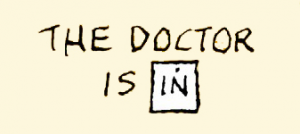Approximately one in 10 Americans undergo a Computed Tomography (CT) scan each year in order to detect abnormalities, injuries or diseases. A highly regarded diagnostic imaging tool due to its ability to detect minute differences in tissue as well as its multiplanar reformatted imaging capabilities, CT is used to diagnose conditions in the neck, chest, abdomen, pelvis, extremities, cardiac and vascular system and sinus and temporal bones.
There are many factors that contribute to an accurate diagnosis based on CT imaging. The training and experience of both the operator performing the procedure and the interpreting physician, the type of CT equipment use, adherence to radiation dose guidelines and the quality assessment metric each facility is required to measure, all contribute to a positive patient outcome. IAC accreditation is a “seal of approval” that patients can rely on as an indicator of consistent quality care and a dedication to continuous improvement.
ENT Memphis – located in Memphis, TN and founded by Dr. Rande Lazar – has been granted a three-year term of accreditation in CT in the areas of Sinus and Temporal Bone CT by the Intersocietal Accreditation Commission (IAC).
Accreditation by IAC means that ENT Memphis has undergone an intensive application and review process and is found to be in compliance with the published Standards. Comprised of a detailed self-evaluation followed by a thorough review by a panel of medical experts, the IAC accreditation process enables both the critical operational and technical components to be assessed, including representative case studies and their corresponding final reports.
IAC accreditation is a “seal of approval” that patients can rely on as an indication that the facility has been carefully critiqued on all aspects of its operations considered relevant by medical experts in the field of CT. When scheduled for a CT procedure, patients are encouraged to inquire as to the accreditation status of the facility where their examination will be performed and can learn more by visiting www.intersocietal.org/ct/main/patients.htm.
IAC accreditation is widely respected within the medical community, as illustrated by the support of the national medical societies related to CT, which include physicians, technologists and physicists. CT accreditation is required by the Centers for Medicare and Medicaid Services (CMS) and in some cases by private insurers. However, patients should remain vigilant in making sure that their CT procedures are performed within accredited facilities, because for some facilities it remains a voluntary process.





 Unfortunately, you can’t dictate your body to only be ill Monday-Friday. The common standard of patient care after hours is an automated phone tree instructing you to either call 911 or go the emergency room. But what if your problem isn’t life threatening? Do you really want to get lost in the ER triage pool? According to an article in USA Today by Laura Ungar, the average wait in the ER for a non-critical patient is 2 hours during the weekday and 3 hours on the weekend. Not to mention exposure to numerous germs and viruses that may make you even more sick. Then why have ER visits jumped 12% since 2011?
Unfortunately, you can’t dictate your body to only be ill Monday-Friday. The common standard of patient care after hours is an automated phone tree instructing you to either call 911 or go the emergency room. But what if your problem isn’t life threatening? Do you really want to get lost in the ER triage pool? According to an article in USA Today by Laura Ungar, the average wait in the ER for a non-critical patient is 2 hours during the weekday and 3 hours on the weekend. Not to mention exposure to numerous germs and viruses that may make you even more sick. Then why have ER visits jumped 12% since 2011?
